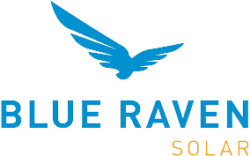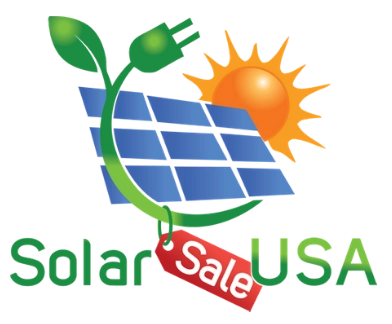Benefits of Solar Energy
Solar energy provides multiple advantages. Here are some highlights.
- Better energy independence: Photovoltaic solar panel systems with energy storage systems work through power outages and emergencies, and you won't have to rely on the grid for your safety and comfort.
- Lower energy bills: Generating some or all of your own power will cut power costs long-term. Plus, some states provide net metering programs that allow you to sell your surplus energy back to the grid, generating extra credits toward your energy bill.
- Reduced carbon footprint: Solar is the universe's most abundant clean energy source, meaning you can minimize or conquer your home's dependence on non-renewable sources.
What Solar Incentives Are Available to Atlanta Homeowners?
Georgia's public agencies and power companies offer multiple solar incentives to help cut your solar system costs. Here is a breakdown of applicable solar programs where you live.
Incentive Type: Sales Tax Incentive
Incentive Amount:
100% exemption
Incentive Type: Rebate Program
Website: georgiapower.comIncentive Amount:
Single Family
Central AC Replacement: $50
Air/Duct Sealing: $300
Attic Insulation: $250
Heat Recovery Water Heater with Heat Pump: $250
Heat Pump Water Heater: $250
Solar Water Heater: $250
Home Energy Assessment: $150
Smart Thermostat: $75
Heat Pump conversion: $250
Multifamily
Central AC Replacement: $25
Air/Duct Sealing: $150
Attic Insulation: $125
Heat Recovery Water Heater with Heat Pump: $250
Heat Pump Water Heater: $250
Solar Water Heater: $250
Home Energy Assessment: $75
Smart Thermostat: $38
Heat Pump conversion: $125
Incentive Type: Loan Program
Website: cgemc.comIncentive Type: Personal Tax Credit
Website: ecowatch.comIncentive Amount:
30% federal tax credit for systems placed in service after 12/31/2021 and before 01/01/2033. Good for: solar water heat, solar photovoltaics, biomass, geothermal heat pumps, wind (small), fuel cells using renewable fuels.
How To Choose the Best Solar Company in Atlanta
Choosing a company is the first step toward a well-oiled and valuable solar system. Make your choice based on the following important considerations.
Licensing and Training
Georgia doesn't have solar-specific contractors' licenses, but the law does require solar installers to be licensed electrical contractors. The Georgia Secretary of State manages business filings and licenses. Check for private accreditations from the North American Board of Certified Energy Practitioners (NABCEP), one of the solar sector's most credible trade groups. Its program includes certifications for both solar photovoltaic and water heating installers.
Cost of Solar Panels in Atlanta
Your photovoltaic panels' model will influence how much electricity you can generate. Monocrystalline panels are among the highest quality and cost the most but perform the best. Polycrystalline panels offer you a budget panel with a traditional design, but at the cost of less power generation. Thin-film panels have a low cost and are excellent for non-traditional roofs, but aren't recommended for large home installations.
You can also add battery backups and electric vehicle (EV) chargers. These will increase your total installation cost, but they can enhance your solar system's efficiency. Not every solar contractor offers these additional features, so look for a provider that sells them if it's important for you.
If you're a resident of Atlanta and want a five-kilowatt solar energy system, you could plan to spend about $18,700 for parts and installation. See more information on specific component and solar panel costs in the table.
| Solar Panel Cost | Average Cost |
|---|---|
| Solar Monocrystalline | $1,150 |
| Solar Polycrystalline | $897 |
| Thin-Film | $524 |
| Solar Battery | $736 |
| Solar Home EV Charger | $2,760 |
Financing Solar Energy in Atlanta
Solar installers offer multiple different financing options to increase your savings and lower your costs. Though some providers offer unique payment plans, the most common are cash payments, solar loans, solar leases and power purchase agreements (PPAs). Though it involves a large up-front payment, cash is the most affordable choice because it qualifies you for solar incentives and doesn't accrue interest. Solar loans are the runner-up option. As with a car or home loan, you'll pay a monthly rate towards system ownership, including interest. You can still apply for cost-saving solar incentives, and depending on your lender, you could put as little as $0 down. Solar leases involve paying a set monthly rate to use rooftop panels. A PPA (Power Purchase Agreement) enables you to pay a monthly rate based only on the energy you use, like an electric bill. We generally don’t recommend these two options because you won't own the panels and are disqualified from using solar incentives. Ask each business you're considering about the payment plans it offers. A staff member can help you determine the optimal option for your budget.
The table below lists the average payback periods for different capacities of solar systems in Atlanta.
You can claim a 26% federal solar tax credit from the IRS for new residential solar systems purchased before 2032. Additionally, local governments and utilities may have their own financing plans and rebates that could reduce your total cost even more.
| Solar System Capacity | Estimated Payback period |
|---|---|
| 1 kW | 1.8 years |
| 2 kW | 3.5 years |
| 5 kW | 8.8 years |
| 10 kW | 17.7 years |
Ready to Get a Quote on Your Solar Project?
Please enter a valid 5-digit zip code!
Frequently Asked Questions About Solar in Atlanta
How much money could I save by going solar in Atlanta?
Is solar energy readily available in Atlanta?
Will a solar PV system raise my Atlanta home price?
Could I still use solar power if I live in a dark, wooded, or rainy area?
What is a Atlanta solar panel's average lifespan?
What's the average solar system size in Atlanta?
How are a solar lease and PPA different?
If you choose a lease, you'll make set payments each month.
With both leases and PPAs, you don't own your panels and lose eligibility for most incentives. Further, you'll have to "buy out" or transfer the contract if you sell your home during the term.
What's the difference between a PPA and traditional financing?
You might consider a PPA if you don’t want to be responsible for maintaining your panels and don’t want to invest in a system, but keep in mind you won’t be paying toward ownership or be able to access any cost-saving solar incentives. Many solar experts don’t recommend PPAs. Our guide covers other payment options above.
To share feedback or ask a question about this article, send a note to our Reviews Team at reviewsteam@thisoldhousereviews.com.



















